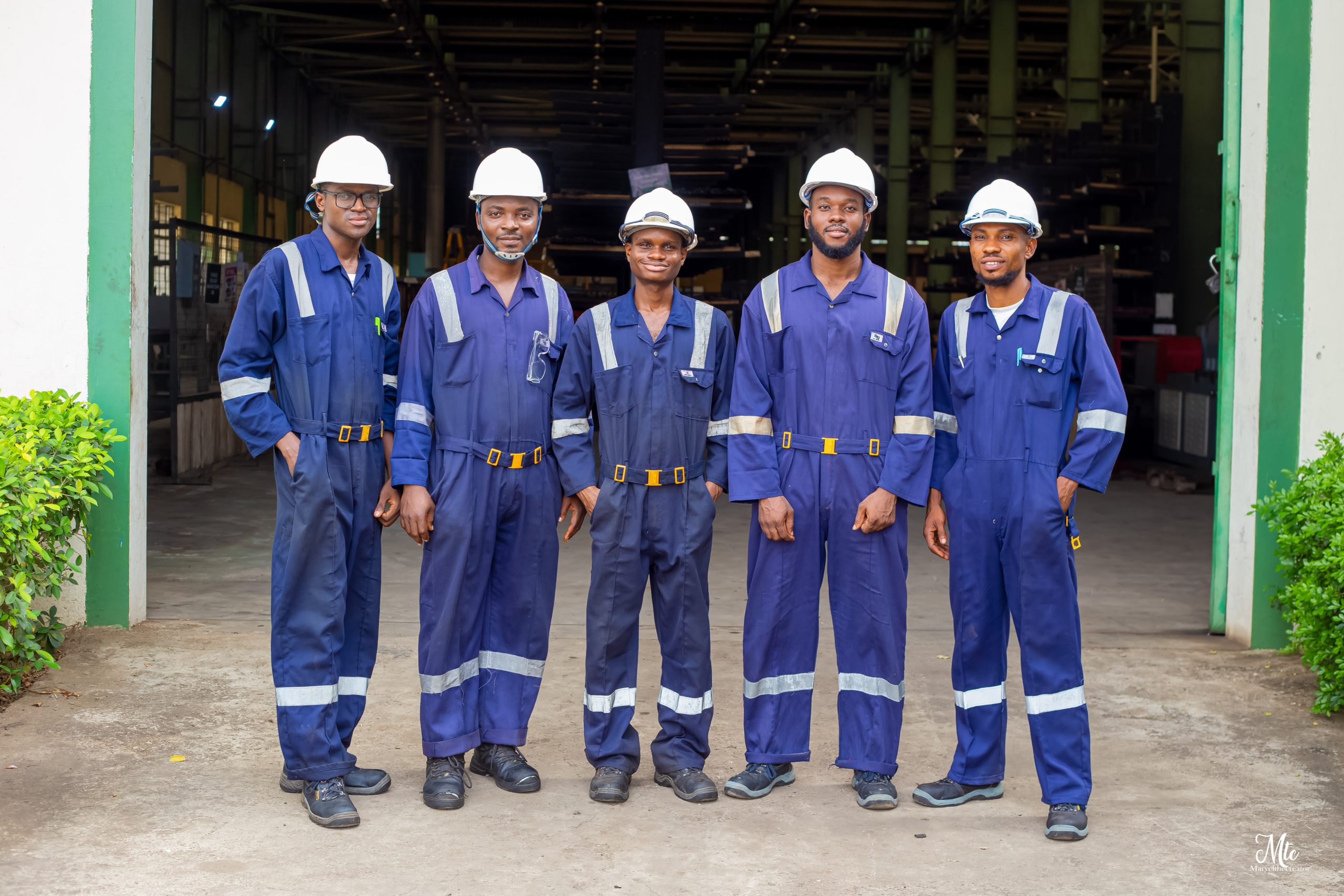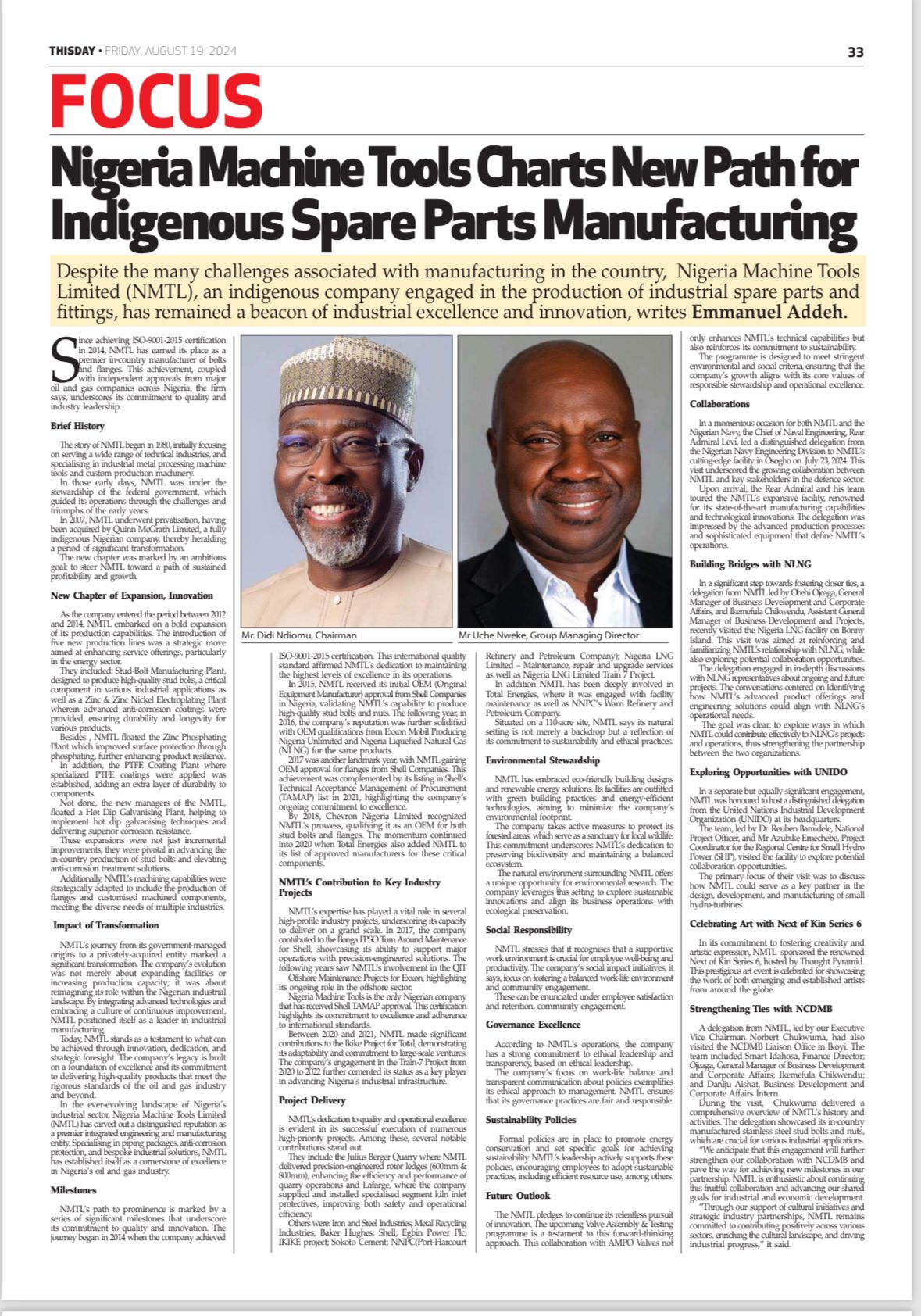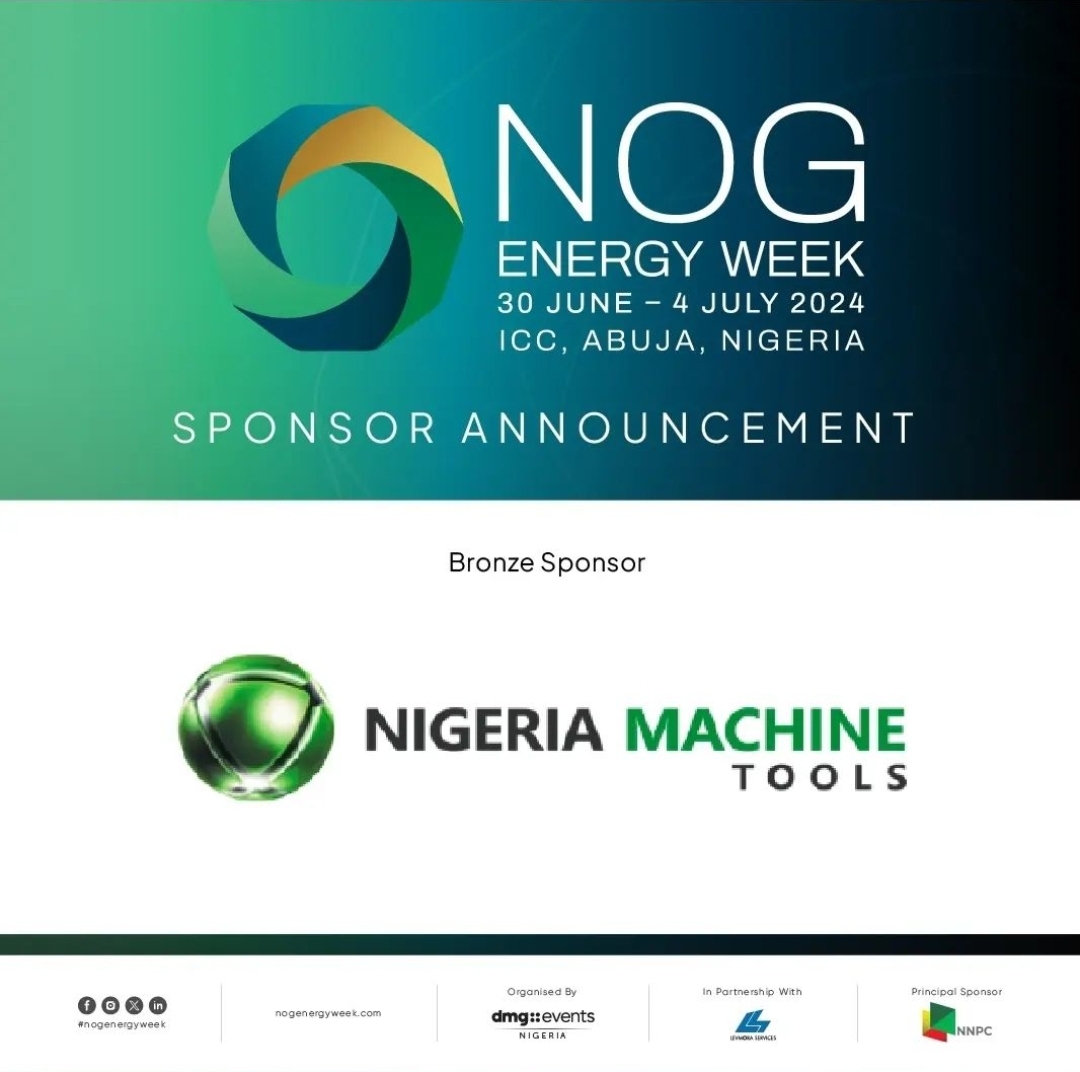Osogbo, Nigeria – On a humid afternoon in Osogbo, sparks dance from a welding bay at Nigeria Machine Tools Limited (NMTL). The clang of metal and the steady hum of machines fill the air as young trainees bend over their work. Their eyes tell the story—focused, determined, and hopeful. For many of them, this workshop is not just a classroom. It is a lifeline. A launchpad. A chance to build a future here at home, instead of chasing it abroad.
For over four decades, NMTL has carried Nigeria’s industrial ambitions on its shoulders. As the nation’s first indigenous machine tools manufacturer, it has built spare parts and precision equipment for industries across the country. But its most valuable product is not steel or machines—it is people.
A National Need, A Local Answer
Nigeria is at a crossroads. The nation needs an estimated 50,000 new technicians every year to power its industrial growth. Yet, the pipeline of skilled workers remains dangerously thin. The result? A heavy reliance on expatriates, while Nigerian youths look overseas for the opportunities missing at home.
NMTL is flipping that script. Its solution is simple but powerful: train Nigerians to global standards, right here in Nigeria, and give them the tools to take charge of their own industries.
From American Society of Mechanical Engineers (ASME)-certified welding and fabrication programs to graduate engineering development schemes covering CNC machining, automation, and metallurgy, NMTL has become more than a factory. The facility spans 110 hectares, with accommodation, recreational facilities—including a full football field—and modern training workshops. It is a training ground for the workforce of tomorrow.
“It’s not just theory,” says one trainee, wiping sweat from his brow. “We train on the same machines used in production. By the time we finish, we’re not just certified—we’re ready.”
Impact Beyond the Workshop
The results are undeniable. NMTL-trained technicians have gone on to:
- Maintain turbines at Egbin Power Plant
- Deliver precision tooling for ExxonMobil
- Contribute to major retooling projects nationwide
- Weld critical infrastructure for Nigeria’s oil and gas industry
- Maintenance and repairs of workshop machines/equipment in various organisation across Nigeria including the world class Nigeria Liquified Natural Gas (NLNG) in Bonny
According to internal data, over 80% of graduates secure employment within six months—a remarkable feat in a country where youth unemployment hovers at troubling levels.
Training That Mirrors Industry
What sets NMTL apart is its philosophy: real training on real equipment. With a 70:30 practical-to-theory ratio, students don’t just learn skills—they practice them until they own them. Accreditation, ISO-certified programs, and global partnerships with firms like Overmach (Italy) and Passtech (UAE) ensure that Nigerian technicians aren’t just competing locally—they are benchmarked against the best in the world.
The Bigger Picture – Nigeria First in Action
NMTL’s model is more than an industrial experiment; it is a living expression of the Nigeria First Policy—a government objective to prioritize local capacity, reduce dependence on imports, and ensure Nigerians take the lead in building and sustaining their own economy.
By aligning its training with the Nigerian Content Development and Monitoring Board (NCDMB) 10-year roadmap and the Nigerian National Petroleum Company (NNPC)manpower requirements, NMTL is bridging the gap between policy and practice.
Obehi Ojeaga, Chief Operating Officer of NMTL, frames it clearly:
“Every technician we train is more than an employee—they are an industrial ambassador. Ending Nigeria’s skills gap is not just an economic necessity; it is a matter of national sovereignty. The Nigeria First Policy provides the framework, but it is institutions like ours that bring it to life.”
Why It Matters
For Nigeria, the stakes are high. Every year, thousands of young people leave for Canada, Europe, and the Middle East, seeking technical jobs they could have filled at home. The irony is striking: a nation with abundant resources is exporting its talent while importing foreign expertise.
What companies like NMTL are proving is that the solution lies within reach. By investing in technical training schools—factories of knowledge as much as of machines—Nigeria can build a workforce that stays, thrives, and transforms the economy.
As the sun sets in Osogbo, a group of trainees gather around their instructor, overalls dusty, notebooks filled with sketches and calculations. For them, the future no longer feels like a ticket away—it feels like something they can build right here.
And for Nigeria, that future is being forged—one welder, one machinist, one engineer at a time.
By Daniju Aishat



